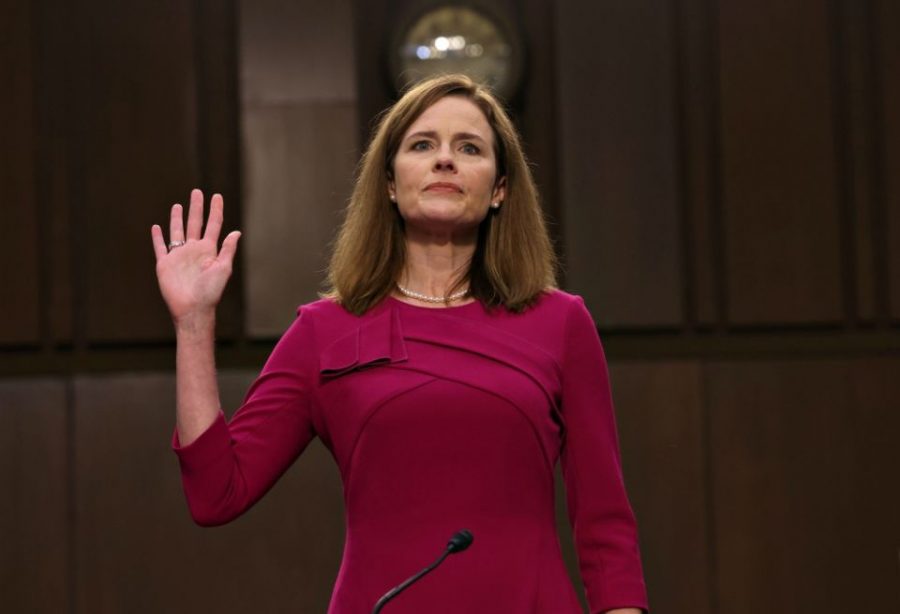The future of the Supreme Court
November 6, 2020
As of October 27th, Amy Coney Barrett was confirmed to become the next Supreme Court justice of the United States. This confirmation was certainly a contentious one, passing by a 52-48 vote in the Senate. Many Republicans have been pushing for a new justice to fill the vacancy left by the death of Ruth Bader Ginsburg, with many Democrats arguing that appointing a justice so soon before the presidential election is unethical. Regardless, the choice has now been made.
Barrett was nominated by current president Donald Trump and is widely considered to lean more conservative, meaning that the Supreme Court now has a rough 6 conservative to 3 liberal composition. This could have serious ramifications for our future supreme court decisions as the Supreme Court is more likely to lean conservative on important cases in the near future.
In specific terms, Barrett believes that Roe v Wade “has acquired no immunity from serious judicial reconsideration.” She does not favor abortion and if the topic came before the Supreme Court again, she has shown that she would likely support the overturn of Roe v Wade’s legal precedent.
Barrett also does not support the Affordable Care Act. She has criticized Chief Justice Roberts for his support of the plan in the past. It is, once again, not outlandish to postulate that if it came to a Supreme Court vote to fully repeal the Affordable Care Act, Barrett would vote to get rid of the system.
Some conservative support of Barrett is based on these positions, as well as her pro-gun rights policies. She has also supported rulings that kept law enforcement officials from using qualified immunity as an excuse for committing immoral and criminal actions. She has defended citizens’ rights against unlawful searches and seizures on multiple occasions. This is evidence that rarely is a person’s political beliefs as simple as ‘conservative’ or ‘liberal’, ‘Republican’ or ‘Democrat’.
With all this said, only time will tell the full impact of Barrett’s nomination. In a country that is increasingly partisan and less willing to listen to the opposition, one can only hope that the Supreme Court will remain a place of legitimate debate and not the name-calling and accusations present in so much of our political system.
Featured Image Citation: “Amy Coney Barrett – Taking Oath.jpg” by Lucy.Sanders.999 is licensed under Creative Commons Attribution-NoDerivs 2.0 Generic. No changes were made to the image. Use of this photo does not indicate photographer endorsement of this article.









